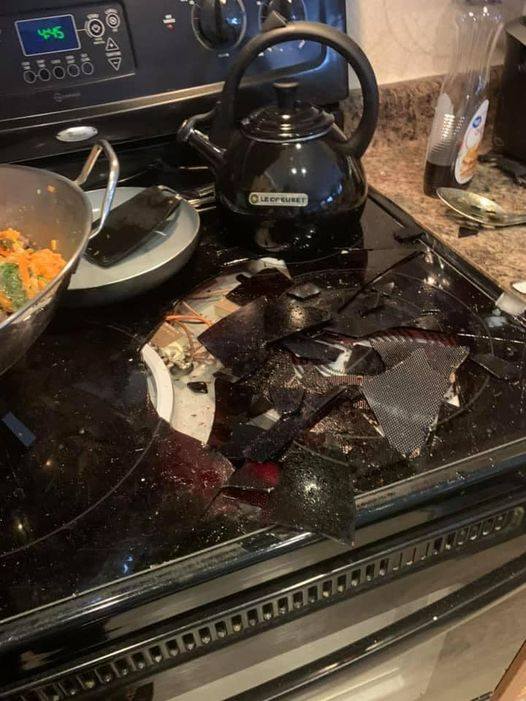
Glass stovetops have become increasingly popular in modern kitchens due to their sleek design and easy cleaning. However, glass stovetops are delicate and require careful handling to avoid cracking or shattering. In this article, we will discuss 9 dangerous glass stovetop habits that you should never make.
1. Using Rough or Abrasive Cleaners
Glass stovetops are prone to scratches, so you should avoid using rough or abrasive cleaners on them. Instead, use a gentle cleaner specifically designed for glass stovetops, and a soft cloth to avoid damaging the surface.
2. Placing Heavy Pots and Pans on the Stovetop
Glass stovetops are not as sturdy as traditional gas stovetops, and they are more likely to crack or shatter if you place heavy pots and pans on them. You should use lightweight pots and pans on your glass stovetop to avoid damaging it. Avoid using cast iron or any cookware that is heavy and has rough or uneven bottoms.
3. Sliding Pots and Pans Across the Stovetop
Dragging pots and pans across the glass stovetop can scratch and damage the surface. Always lift cookware instead of sliding it, especially when it is full of food or liquid.
4. Leaving Spills and Stains
Spills can quickly become baked onto the glass surface if not cleaned up promptly. Not only can this cause unsightly stains, but it can also cause damage to the stovetop. Clean spills as soon as they happen.
5. Cooking with dirty cookware
Cooking with dirty cookware can leave residue and grime on the stovetop, which can damage the surface. Always make sure that your cookware is clean before using it on a glass stovetop.
6. Placing a hot lid face down on a glass stovetop
Placing a hot lid face down on a glass stovetop can be a dangerous habit. The sudden change in temperature can cause the glass stovetop to crack or shatter, which can lead to serious injury or property damage.
This is because glass is a poor conductor of heat, so when a hot object is placed on it, the glass can become stressed and weaken. When the hot lid is placed face down on the glass stovetop, it can create a sudden and significant temperature change, which can cause the glass to break.
To avoid this danger, it is important to always place hot lids on a heat-resistant surface, such as a trivet or a countertop that can handle high temperatures. It is also a good idea to let the lid cool down for a few minutes before placing it on any surface to reduce the risk of thermal shock.
7. Ignoring Cracks or Chips
If you notice a crack or chip on your glass stovetop, don’t ignore it. Even small cracks or chips can expand over time and cause the stovetop to shatter. Replace the stovetop immediately or seek professional repair.
8. Heating an Empty Pot or Pan
Never heat an empty pot or pan on a glass stovetop. This can cause the pot or pan to overheat and damage the stovetop. Always ensure that there is food or liquid in your cookware before placing it on the stovetop.
9. Not Following the Manufacturer’s Instructions
Each glass stovetop may have different care and cleaning instructions, so it’s essential to read the manufacturer’s instructions carefully. Failure to follow these instructions can cause damage or even safety hazards.
Leave a Reply